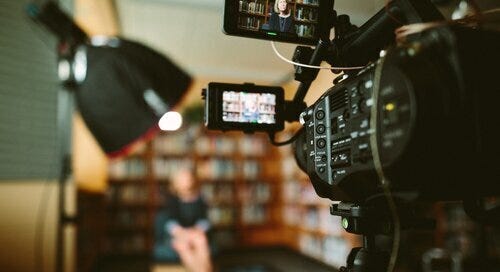What springs to mind when you think of the term “disabled person?” Is it the image of an elderly person in a wheelchair? Someone who uses a motorised scooter? Someone deaf? Or blind? These all might very well be accurate descriptors, but the point is disabled people are mostly just people — some nice, others not-so-nice, but more often, both, just like everyone else. This sounds absurdly obvious, but a quick study of media representation of disability reveals that this message is conspicuously absent for the most part.
You might wonder why being depicted in the media is so important. A lack of representation for an already marginalised group means further marginalisation. We become invisible and therefore sidelined. That’s pretty demoralising, as other minorities could tell you. Out of sight (and not on television, or in films, or in novels) means out of mind. I’m not advocating that this representation should be centred around the fact that someone is disabled, but simply that they are a person who happens to have a disability.
Why can’t we have an imaginative television show whose main character uses a wheelchair or has autism or is Deaf? Imagine watching the ups and downs and joys and miseries of a Deaf vampire for instance. The seeds have already been sown with delightful characters like Game of Thrones’ Tyrion Lannister, X-Men’s Charles Xavier, Community’s Abed Nadir, Alphas’ Gary Bell, and if you look at the real world, the Paralympians that knocked the collective breath out of London in 2012. That said, if you use these real (non-fictional) Paralympians as an indication of how compelling our various abilities are, then why is it so hard to imagine that there are actors, musicians and artists out there who are able to tell these stories themselves (such as Peter Dinklage’s Tyrion)?
This is a call to disabled artists, musicians, screenwriters, authors, filmmakers, actors, comedians, models, designers, commissioning agents, advertisers, entrepreneurs: maybe it’s time for us to stop asking to be included, push our way onto the stage, and be represented. We have all the abilities, talents, ingenuity and complexities that everyone else has — the ability to create mass media that can move, affect and influence society. And this is a call to you, dear readers: it might not always be comfortable or familiar, but it is worthwhile to be interested in the work of disabled creatives. We have a lot to say, and you will be enthralled.
Given my creative background, that’s why I am currently working on setting up an organisation to address this and rally disabled creatives. The organisation’s aim would be to provide these creatives with connections in the media’s eye and generate greater awareness for them in society. Welcome to a new era of visibility.
I hope you will join me on this incredible adventure: together we can have a real positive impact on the world.
Stay tuned for further updates on this.




